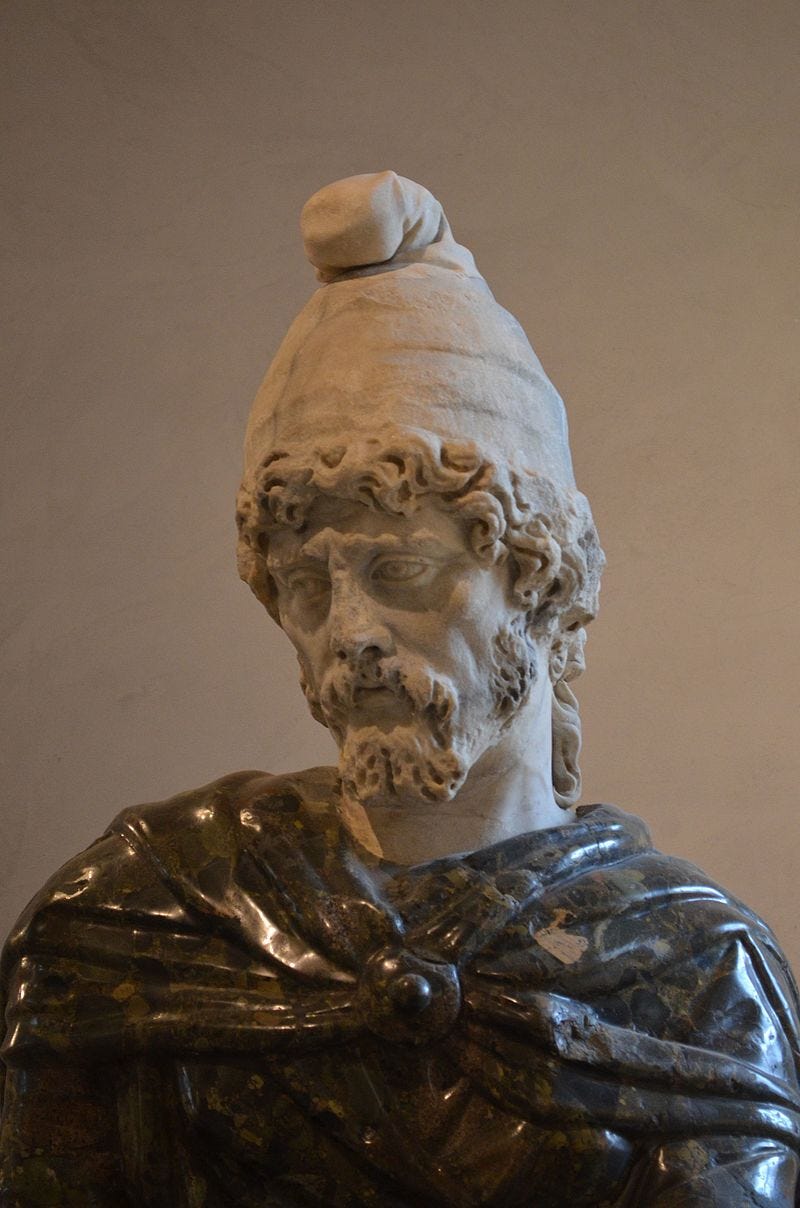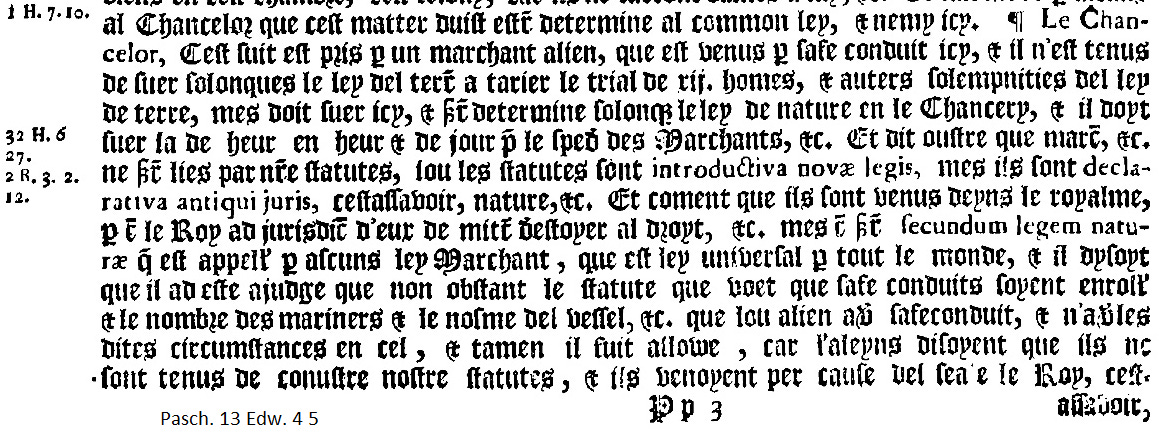Freedom and Servitude II
This article is a brief one to note down two interesting cases and the distinction between two types of law:
merchants, etc. will not be bound by our statutes, where the statutes are introductive of new law (introductiva novae legis), but (foreign merchants will be bound when) they (the statutes) are declarative of old right (declarativa antiqui juris), that is to say, nature, etc.; and even though they (foreign merchants) have come within the realm, so the king has jurisdiction over them to put them to stand (estoyer) to right, etc., but this will be ‘according to the law of nature’ (secundum legem naturae) which is called by some ‘law merchant’, which is universal law for everyone (tout le monde) (Pasch. 13 Edw. 4 5)
The distinction I want to draw your attention to is that of novae legis vs. antiqui juris: new law vs. ancient right. So, for example, the natural law against murder is ancient right, and the speed limit is new law. It also shows that statutes may be of two types: introductive of new law, and declarativa of ancient law. We also see the notion of the laws of nature as “universal law” for everyone. One notion that circulates in the Sovereign Human internet chat is that statutes are a bad thing; they can be, if they introduce new law, in derogation of our patrimony, that is, our freedom. If, however, they declare our patrimony, that is, the law of nature, or ancient right, they might not be so bad.
This also declares a procedural truth, vis. that the proceeding will be “according to the law of nature. Here is another case on that front:
… there are two kinds (maner) of powers (poyars) and processes, that is, ‘potentia ordinata’ (ordered power) and ‘absoluta’ (absolute power); ‘ordinata’ (ordered) is where a certain order is observed, as in positive law (ley positive), but the law of nature ‘has no certain order’ (non habet certum ordinem), but by whatever means that the truth can be known, etc. and ‘so it is called absolute process’ etc. and ‘it is required in the law of nature’ that the parties be present, etc. or that they be absent by contempt (contumacy), that is to say, where they are garnished (warned, garnies) and they default, etc. and ‘examination into the truth’ (examinatio veritatis)” (Trin. 9 Edw. 4 9 (fol. 14a))
Here we see that the law of nature has no certain order, but is concerned with truth. Positive law, on the other hand, has an ordered manner of proceeding. And we should note at the outset that this ordered process is in some sense new law, for ancient right is absolute, not ordered. In some sense, it is the case that positive law, ley positive, obscures the natural manner of proceeding, which is according to the law of nature, which we have previously revealed to be the law of God.
The existence of corporations is, indeed, a quagmire, for they exist by positive law, and not in nature; for corporations are inherently art, which is the opposite of nature, for they are framed not by nature but by the policy of man. Therefore, is it true that corporations exist? It is in a sense: a statue exists. But is it true that a statue has any capacity to speak, or to act? It is not.
If we have the notion that examination into the truth is important, or, indeed, the natural manner of judicial proceeding, it is a question what the alternative of ordered power is; it seems likely that it is, in part, a suspension of truth, for example, the truth that only Nature may create persons, and that, while men may frame persons, in the sense of scarecrows or statues, they are not persons in the sense of having any rights or powers, for they lack souls in which rights may inhere, and they lack bodies



